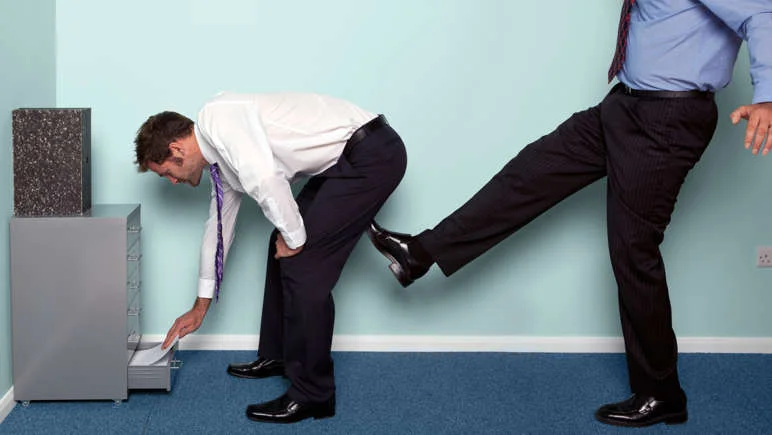How to Handle Adult Bullying
When most people think of bullying, they usually think of children being mean to a peer on the school playground. Unfortunately, bullying doesn’t always stop once you become an adult. An adult bully can be an intimidating boss or colleague, a stranger on the street, an abusive romantic partner—the list goes on. This guide explores the different types of adult bullies and provides practical steps you can take as a victim, bystander, or even as a perpetrator.
An Overview of Adult Bullying

Adults who engage in bullying are usually more likely to do so in ways that are not physical. However, there can be cases in which physical abuse occurs alongside bullying. When it comes to adult bullying, the perpetrators tend to fall into specific categories.
Adult Bully with Narcissistic Traits

An adult bully with narcissistic tendencies can be so self-involved that they may ignore the needs of those around them. When they choose to bully other adults, they often do so because they lack empathy or fear of potential consequences. They generally experience self-esteem issues, which can lead to a compulsion to humiliate other people.
Impulsive Adult Bully

This type of adult bully tends to engage in sporadic and uncontrolled bullying. Sometimes they bully when they’re under stress or going through a tough time, which, of course, doesn’t excuse it.
Physical Adult Bully

Physical adult bullies typically perpetuate bullying by hitting, kicking, slapping, or otherwise physically assaulting others. They may also stalk, steal from, or destroy the personal property of their targets. A physical bully may experience challenges with anger management and other potential psychological issues.
Verbal Adult Bully

Verbal adult bullies tend to use their words to belittle people and can be considered passive-aggressive. Some verbal adult bullies may spread rumors, gossip about others, and otherwise use words to hurt their targets.
Secondary Adult Bullies

Secondary adult bullies can be defined as witnesses to the actions of the bully who generally choose to join in so they won’t become the bully’s next target. They’re most likely afraid to speak out against the bully’s behavior.
How to Deal with Adult Bullies

If you’re the victim of an adult bully, there are a few things you can do to protect yourself. Remember: you don’t need to accept these kinds of behaviors.
Distance Yourself

If you work together, take preventive measures to not be around the bully more than absolutely necessary. Limiting interactions can reduce the bully’s opportunities to target you.
Work on Your Confidence

Strengthen and build your own self-confidence to help you deal with the bully. Some tips include meditating or writing a journal. Personal experience shows that maintaining a journal can help process your thoughts and feelings, providing clarity and boosting self-esteem.
Seek Support
Reach out to trusted friends, family members, or a mental health professional. Sharing your experience can offer emotional relief and practical advice. Experts like Dr. Andrea Bonior, a clinical psychologist, emphasize the importance of a support system in dealing with bullying.
Document the Bullying

Keep a detailed record of all bullying incidents, including dates, times, locations, and any witnesses. This documentation can be crucial if you need to report the bullying to HR or law enforcement.
Confront the Bully
If you feel safe doing so, calmly confront the bully about their behavior. Use “I” statements to express how their actions affect you. For example, “I feel disrespected when you interrupt me during meetings.”
Report the Bullying

If the bullying occurs at work, report it to your HR department or a supervisor. If it’s happening elsewhere, consider contacting local authorities or seeking legal advice.
Build Resilience
Engage in activities that boost your resilience and stress management. Exercise, hobbies, and spending time with loved ones can strengthen your mental health and reduce the impact of bullying.
Adult bullying is a serious issue, but by understanding the different types of bullies and taking proactive steps, you can protect yourself and foster a healthier, more respectful environment.

